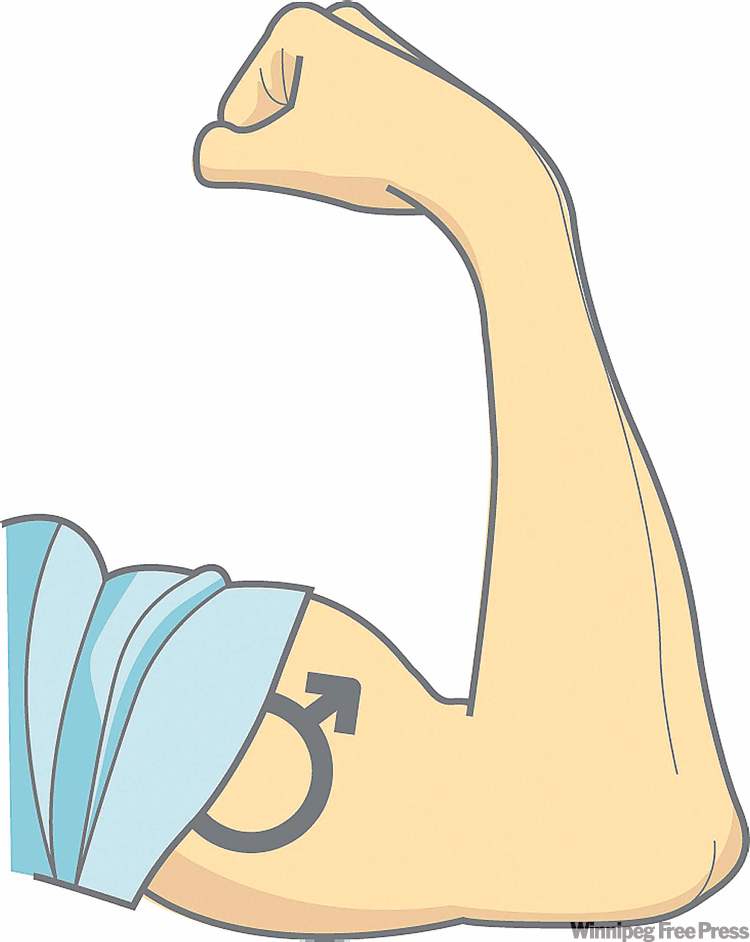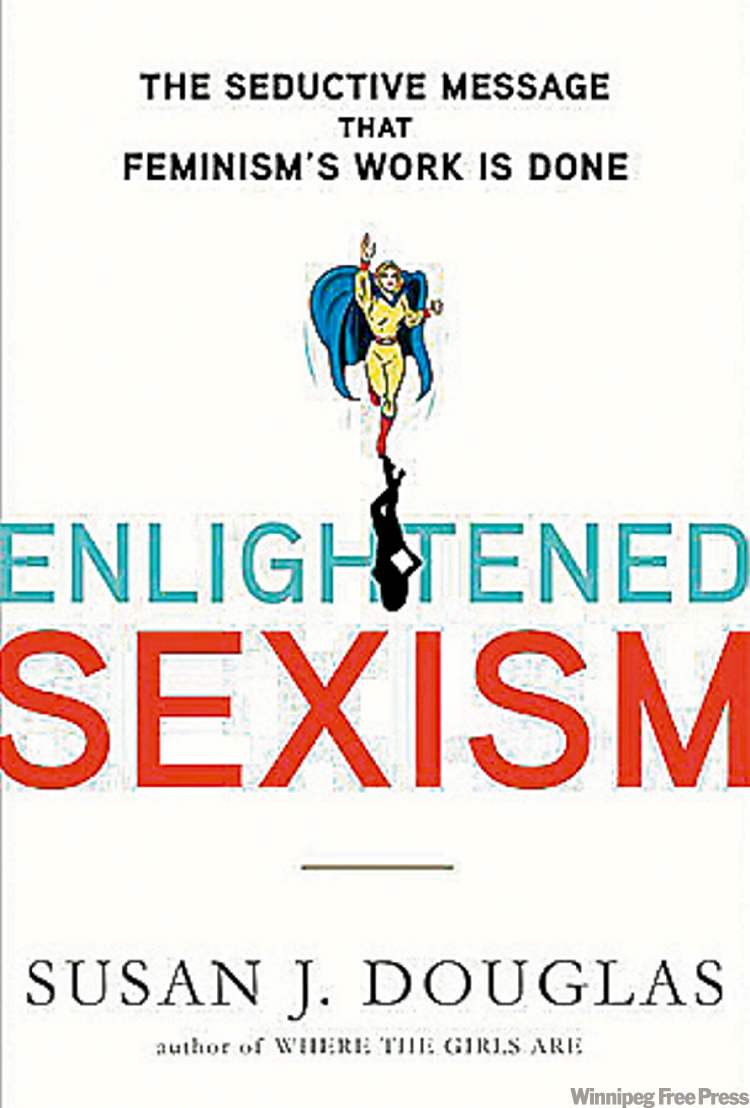Pop culture full of false representations of women, feminism
Advertisement
Read this article for free:
or
Already have an account? Log in here »
To continue reading, please subscribe:
Monthly Digital Subscription
$0 for the first 4 weeks*
- Enjoy unlimited reading on winnipegfreepress.com
- Read the E-Edition, our digital replica newspaper
- Access News Break, our award-winning app
- Play interactive puzzles
*No charge for 4 weeks then price increases to the regular rate of $19.00 plus GST every four weeks. Offer available to new and qualified returning subscribers only. Cancel any time.
Monthly Digital Subscription
$4.75/week*
- Enjoy unlimited reading on winnipegfreepress.com
- Read the E-Edition, our digital replica newspaper
- Access News Break, our award-winning app
- Play interactive puzzles
*Billed as $19 plus GST every four weeks. Cancel any time.
To continue reading, please subscribe:
Add Free Press access to your Brandon Sun subscription for only an additional
$1 for the first 4 weeks*
*Your next subscription payment will increase by $1.00 and you will be charged $16.99 plus GST for four weeks. After four weeks, your payment will increase to $23.99 plus GST every four weeks.
Read unlimited articles for free today:
or
Already have an account? Log in here »
Hey there, time traveller!
This article was published 15/05/2010 (5649 days ago), so information in it may no longer be current.
Enlightened Sexism
The Seductive Message That Feminism’s Work Is Done
By Susan J. Douglas

Times Books, 354 pages, $31
Sexism’s biggest triumph, according to American feminist and author Susan Douglas, is convincing us that it no longer exists.
This breeds a complacency that in fact helps to embed sexism more deeply in our culture, and makes it harder to fight.
In her third book written for non-academics, she deconstructs pop culture in an attempt to show that negative portrayals of women have evolved rather than receded.
While her guided tour of television, music, books and magazines from the past two decades is a fun read, Douglas is only partly successful at supporting her central argument.
Increasing numbers of young women, she writes, have concluded that feminism is no longer relevant, its major goals having been achieved.
In fact, the tongue-in-cheek style of television in particular actually enables the perpetuation of some fairly ugly archetypes and generalizations.
"For media-savvy youth," she points out, "irony means that you can look as if you are absolutely not seduced by the mass media, while then being seduced by the media, while wearing a knowing smirk."
In a similar vein, television shows that present women as aggressive and ultra-successful surgeons, lawyers, police chiefs, politicians and executives might be a step up from I Love Lucy in terms of gender politics, but they ultimately present just another caricature of what it means to be a woman.

Not only should women be masters of the universe in their chosen careers, they must at the same time be young, beautiful, thin and if, possible blond, and well-endowed.
Many strong female characters are unmarried, divorced, infertile or plagued by problems in their love lives and parenting, an implicit lesson that their success has come at the cost of their femininity.
Douglas’s detailed look at the strong and independent stars of Buffy the Vampire Slayer and Alias shows how these seeming poster children for girl power are in fact reliant on men, both as romantic interests and father figures, in ways that their male counterparts aren’t.
On some topics, Douglas hits it out of the park. Her judgment that mainstream modern feminism has largely ignored issues of race and class, concerning itself primarily with the struggles of white women from the upper or middle classes, is spot on.
So is her critique of the snarled-up relationship between consumerism and our interpretation of beauty, in which the worlds of advertising and entertainment collide to create a framework within which femininity requires heavy investment of time and money in order to meet an elusive ideal.
Douglas is an academic, and it shows in her writing, not because it is too complex or challenging but because she is clearly trying so hard not to write like an academic.
Her liberal use of "OMG" is presumably meant to demonstrate some kind of street cred, but it reads as clumsiness.
In Douglas’s articles in Ms. and the Village Voice, and in the many segments here where she’s not trying so hard, her writing is accessible and seems much less forced.
She also relies in every single chapter on cheap ad hominem attacks, characterizing figures she disagrees with as "troglodytes" and "lard-butts," rather than explaining why their ideas are wrong, or outright dangerous, as she claims.

While the examples Douglas cites bolster her points, she cherry-picks them to serve her purposes. She criticizes Law and Order for casting a succession of young blond beauties as prosecutors instead of more average-looking actresses, for instance, but ignores the fact that the Jack McCoy role is played by Sam Waterston, eye candy for women of a certain age, and not Danny DeVito or Wayne Knight (aka Newman from Seinfeld.)
In a similar vein, she decries (rightly) music lyrics that glorify rape and violence towards women, but lauds a girl group whose lyrics describe stabbing an ex-boyfriend in the chest.
Despite these weaknesses, Enlightened Sexism makes a compelling case that pop culture is filled with problematic representations of women.
Readers who are well-versed in the TV, movies, music and books of the last generation will have fun comparing Douglas’ assessments with their own, and those who aren’t will get a quick tour of the highlights and (much more numerous) low points of these media. Douglas watched hundreds of hours of reality TV so you don’t have to!
Winnipegger Rebecca Walberg is the post-feminist president of the post-partisan Wakefield Centre for Policy Research.


